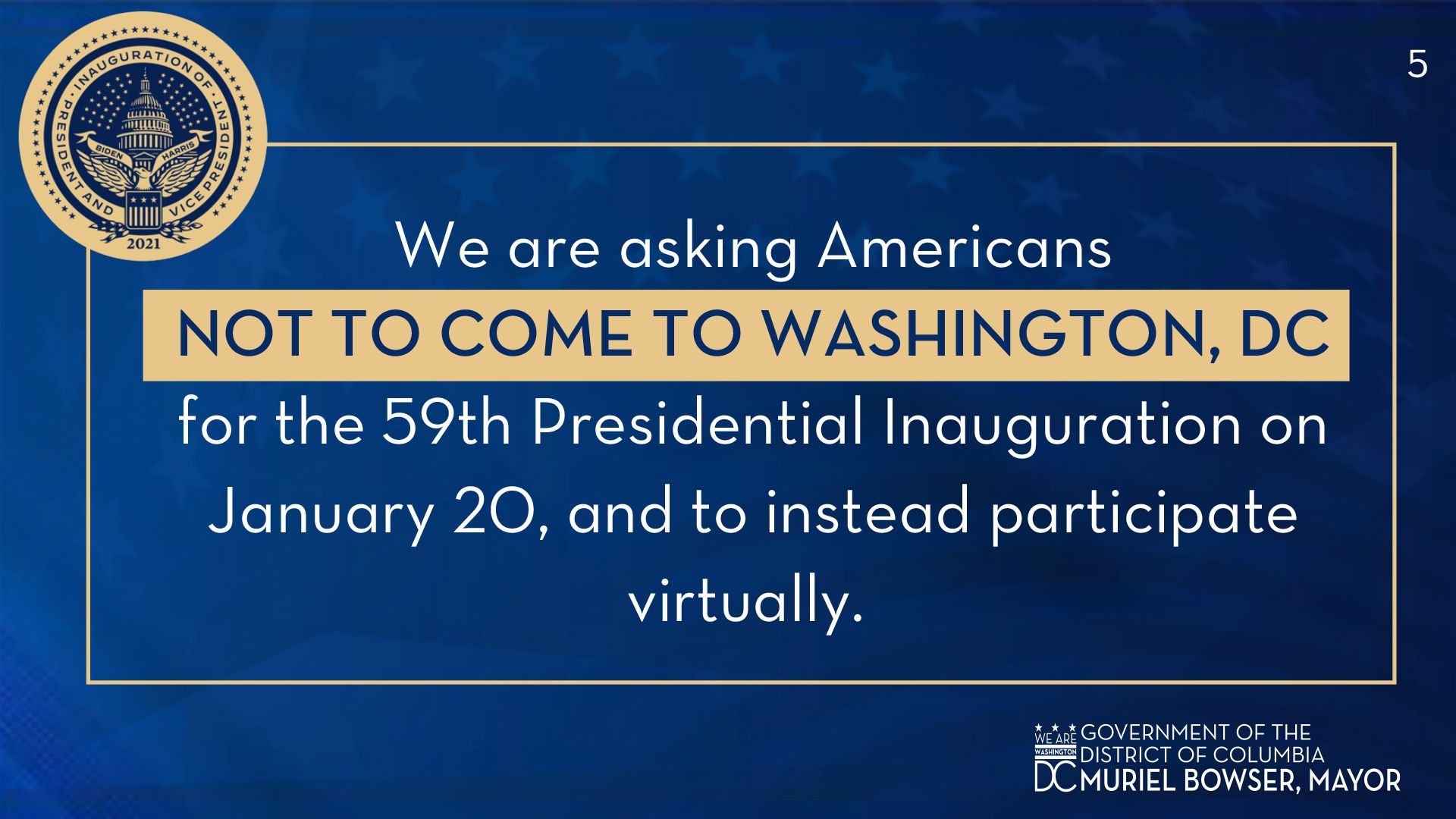Capitol mob assault costs more public freedoms
Add Axios as your preferred source to
see more of our stories on Google.

A screen from Mayor Muriel Bowser's PowerPoint presentation today. Illustration: Aïda Amer/Axios
Last week's siege is turning the nation's capital into Fortress Washington.
Why it matters: In the aftermath of Capitol assault, security has been heightened throughout D.C., prompting the question: Will the loss of freedoms be temporary or permanent? It's also sparked rage that prior defenses proved so porous.
National Park Service authorities announced Monday they have closed the Washington Monument through Joe Biden's inauguration.
- The Washington Post reported up to 15,000 National Guard troops could be sent to the city to ensure security for the event.
- Mayor Muriel Bowser asked President Trump to issue a emergency declaration to release extra security funding. He later agreed. She also asked tourists to stay away from the city.
- Groups of U.S. Park Police officers are already patrolling the Lincoln Memorial. Barriers are spread at the foot of the steps where Martin Luther King Jr. once spoke, with a gap for pedestrians that can be closed at a moment's notice.
- Security fencing now surrounds the Capitol, and National Guard troops are stationed on the perimeter. The fence will remain for 30 days.
- Crews have reinstalled plywood on offices and storefronts throughout downtown after removing it following Election Day.
The backstory: After the 1995 Oklahoma City bombing, vehicle traffic was permanently blocked from Pennsylvania Avenue in front of the White House.
- Following the 9/11 attacks, thousands of bollards were drilled into the ground around all federal buildings to halt truck bombs.
- Rifle-toting police and dog teams also stretched along the perimeter of the Capitol, no longer letting pedestrians enjoy sunsets from its western face.
- Congress also spent over $600 million on the Capitol Visitors Center, pushing security checkpoints farther away from the building.
- Throughout the Trump administration, unscalable fencing has been repeatedly installed, expanded and removed from sidewalks and parks surrounding the White House, enlarging the no-tourist zone.
What they're saying: "I hate all these fences going up," Rep. Tom Malinowski (D-N.J.) told CNN this afternoon, saying he hopes they can come down soon.
- Malinowski urged authorities to pursue extremists and domestic terrorists in their hometowns.
- "We need to go on offense," he said.
